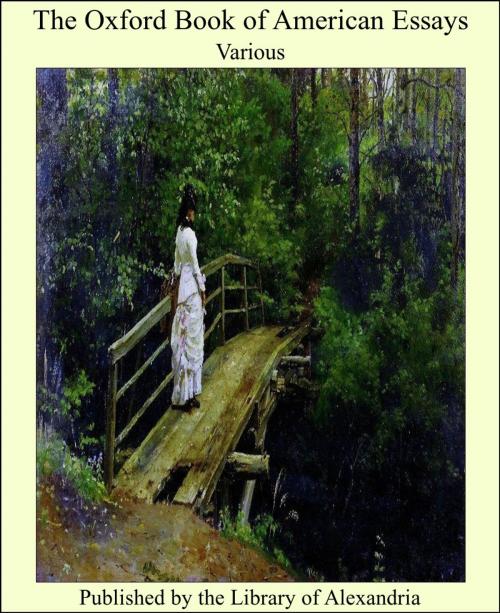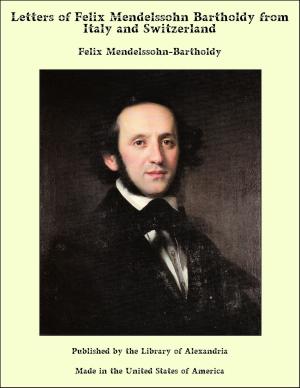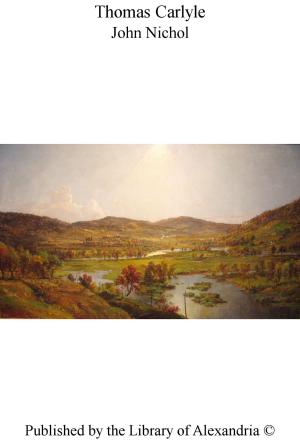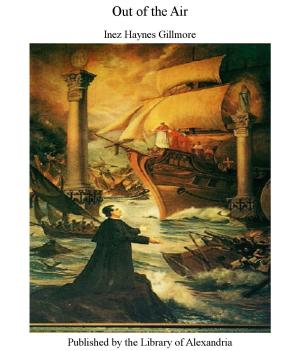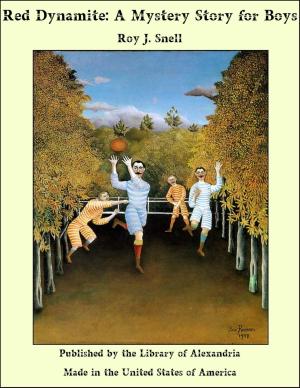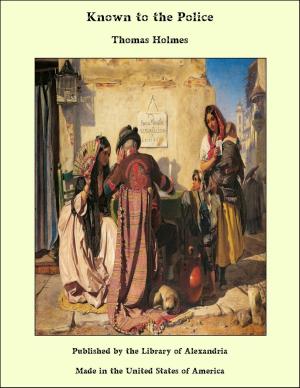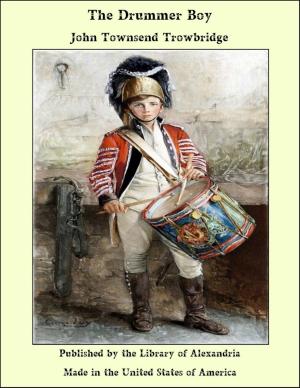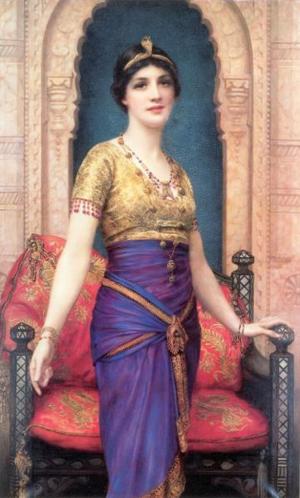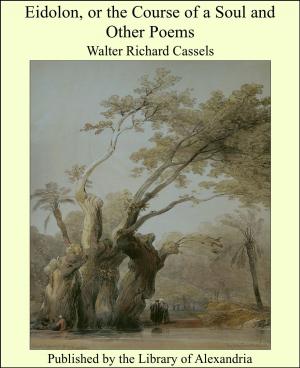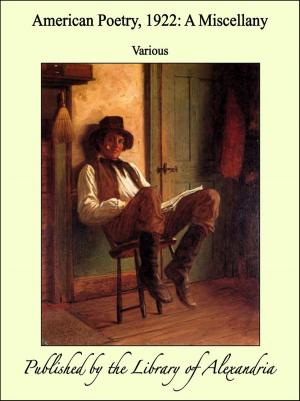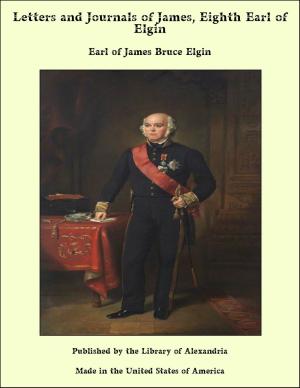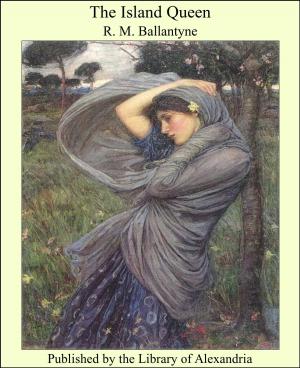The Oxford Book of American Essays
Nonfiction, Religion & Spirituality, New Age, History, Fiction & Literature| Author: | Various Authors | ISBN: | 9781465536143 |
| Publisher: | Library of Alexandria | Publication: | March 8, 2015 |
| Imprint: | Language: | English |
| Author: | Various Authors |
| ISBN: | 9781465536143 |
| Publisher: | Library of Alexandria |
| Publication: | March 8, 2015 |
| Imprint: | |
| Language: | English |
THE customary antithesis between "American" literature and "English" literature is unfortunate and misleading in that it seems to exclude American authors from the noble roll of those who have contributed to the literature of our mOther-tongue. Of course, when we consider it carefully we cannot fail to see that the literature of a language is one and indivisible and that the nativity or the domicile of those who make it matters nothing. Just as Alexandrian literature is Greek, so American literature is English; and as Theocritus demands inclusion in any account of Greek literature, so Thoreau cannot be omitted from any history of English literature as a whole. The works of Anthony Hamilton and Rousseau, Mme. de Staël and M. Maeterlinck are not more indisputably a part of the literature of the French language than the works of Franklin and Emerson, of Hawthorne and Poe are part of the literature of the English language. Theocritus may never have set foot on the soil of Greece, and Thoreau never adventured himself on the Atlantic to visit the island-home of his ancestors; yet the former expressed himself in Greek and the latter in English,—and how can either be neglected in any comprehensive survey of the literature of his own tongue? None the less is it undeniable that there is in Franklin and Emerson, in Walt Whitman and Mark Twain, whatever their mastery of the idiom they inherited in common with Steele and Carlyle, with Browning and Lamb, an indefinable and intangible flavor which distinguishes the first group from the second. The men who have set down the feelings and the thoughts, the words and the deeds of the inhabitants of the United States have not quite the same outlook on life that we find in the men who have made a similar record in the British Isles. The social atmosphere is not the same on the opposite shores of the Western ocean; and the social organization is different in many particulars. For all that American literature is,—in the apt phrase of Mr. Howells,—"a condition of English literature," nevertheless it is also distinctively American. American writers are as loyal to the finer traditions of English literature as British writers are; they take an equal pride that they are also heirs of Chaucer and Dryden and subjects of King Shakspere; yet they cannot help having the note of their own nationality. It may be noted also that although American literature has not been adorned by so great a galaxy of brilliant names as illumined British literature in the nineteenth century, it has had the good fortune to possess more authors of cosmopolitan fame than can be found in the German literature of the past hundred years, in the Italian, or in the Spanish. A forgotten American essayist once asserted that "foreign nations are a contemporaneous posterity," and even if this smart saying is not to be taken too literally, it has its significance. There is therefore food for thought in the fact that at least half a dozen, not to say half a score, of American authors have won wide popularity outside the limits of their own language,—a statement which could not be made of as many German or Italian or Spanish authors of the nineteenth century. From the death of Goethe to the arrival of the playwrights of the present generation, perhaps Heine is the sole German writer either of prose or of verse who has established his reputation broadly among the readers of Other tongues than his own. And not more than one or two Spanish or Italian authors have been received even by their fellow Latins, as warmly as the French and the Germans have welcomed Cooper and Poe, Emerson and Mark Twain. It is to present typical and characteristic examples of the American contribution to English literature in the essay-form that this volume has been prepared. Perhaps the term "essay-form" is not happily chosen since the charm of the essay lies in the fact that it is not formal, that it may be whimsical in its point of departure, and capricious in its ramblings after it has got itself under way. Even the Essay is itself a chameleon, changing color while we study it. There is little in common between Locke’s austere Essay on the Human Understanding and Lamb’s fantastic and frolicsome essay on Roast Pig. He would be bold indeed who should take compass and chain to measure off the precise territory of the Essay and to mark with scientific exactness the boundaries which separate it from the Address on the one side and from the Letter on the Other
THE customary antithesis between "American" literature and "English" literature is unfortunate and misleading in that it seems to exclude American authors from the noble roll of those who have contributed to the literature of our mOther-tongue. Of course, when we consider it carefully we cannot fail to see that the literature of a language is one and indivisible and that the nativity or the domicile of those who make it matters nothing. Just as Alexandrian literature is Greek, so American literature is English; and as Theocritus demands inclusion in any account of Greek literature, so Thoreau cannot be omitted from any history of English literature as a whole. The works of Anthony Hamilton and Rousseau, Mme. de Staël and M. Maeterlinck are not more indisputably a part of the literature of the French language than the works of Franklin and Emerson, of Hawthorne and Poe are part of the literature of the English language. Theocritus may never have set foot on the soil of Greece, and Thoreau never adventured himself on the Atlantic to visit the island-home of his ancestors; yet the former expressed himself in Greek and the latter in English,—and how can either be neglected in any comprehensive survey of the literature of his own tongue? None the less is it undeniable that there is in Franklin and Emerson, in Walt Whitman and Mark Twain, whatever their mastery of the idiom they inherited in common with Steele and Carlyle, with Browning and Lamb, an indefinable and intangible flavor which distinguishes the first group from the second. The men who have set down the feelings and the thoughts, the words and the deeds of the inhabitants of the United States have not quite the same outlook on life that we find in the men who have made a similar record in the British Isles. The social atmosphere is not the same on the opposite shores of the Western ocean; and the social organization is different in many particulars. For all that American literature is,—in the apt phrase of Mr. Howells,—"a condition of English literature," nevertheless it is also distinctively American. American writers are as loyal to the finer traditions of English literature as British writers are; they take an equal pride that they are also heirs of Chaucer and Dryden and subjects of King Shakspere; yet they cannot help having the note of their own nationality. It may be noted also that although American literature has not been adorned by so great a galaxy of brilliant names as illumined British literature in the nineteenth century, it has had the good fortune to possess more authors of cosmopolitan fame than can be found in the German literature of the past hundred years, in the Italian, or in the Spanish. A forgotten American essayist once asserted that "foreign nations are a contemporaneous posterity," and even if this smart saying is not to be taken too literally, it has its significance. There is therefore food for thought in the fact that at least half a dozen, not to say half a score, of American authors have won wide popularity outside the limits of their own language,—a statement which could not be made of as many German or Italian or Spanish authors of the nineteenth century. From the death of Goethe to the arrival of the playwrights of the present generation, perhaps Heine is the sole German writer either of prose or of verse who has established his reputation broadly among the readers of Other tongues than his own. And not more than one or two Spanish or Italian authors have been received even by their fellow Latins, as warmly as the French and the Germans have welcomed Cooper and Poe, Emerson and Mark Twain. It is to present typical and characteristic examples of the American contribution to English literature in the essay-form that this volume has been prepared. Perhaps the term "essay-form" is not happily chosen since the charm of the essay lies in the fact that it is not formal, that it may be whimsical in its point of departure, and capricious in its ramblings after it has got itself under way. Even the Essay is itself a chameleon, changing color while we study it. There is little in common between Locke’s austere Essay on the Human Understanding and Lamb’s fantastic and frolicsome essay on Roast Pig. He would be bold indeed who should take compass and chain to measure off the precise territory of the Essay and to mark with scientific exactness the boundaries which separate it from the Address on the one side and from the Letter on the Other
